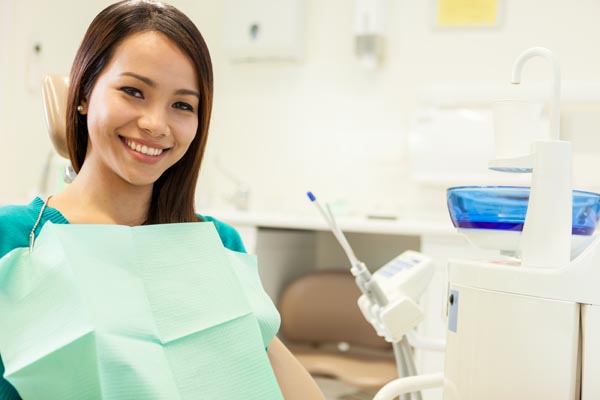Why Smoking Is Bad for Your Dental Health

Are you a smoker and wondering how smoking affects your dental health? For almost half a century, we have been warned by the Surgeon General that smoking is bad for our health. One thing that has not been given the attention it warrants is the fact that smoking is also bad for your dental health and can create major dental problems.
Smoking and your dental health
Staining
Smoking and the use of tobacco products is bad for your dental health because of the effects it has on your teeth and gums. Cigarettes stain your teeth because of the tar and nicotine in the tobacco, which makes your teeth turn yellow or brown, depending on how long you have been smoking.
Gum disease
You also put yourself at risk of gum disease when you smoke or use smokeless tobacco. The chemicals in the tobacco cause inflammation around your teeth because of a shortage of oxygen in your bloodstream, which prevents your gums from healing quickly.
Oral cancer
Tobacco use also increases your risk of oral cancer. According to the American Cancer Society, 90 percent of people with oral cancer have used tobacco products. Smokers are also six times more likely to develop oral cancer than non-smokers, while smokeless tobacco users are 50 times more likely to develop oral cancer than people who do not use tobacco products.
Are there oral hygiene products designed for smokers?
Yes, if you are a smoker and want to reduce your chances of tooth decay and gum disease, there are kinds of toothpaste that are specifically made for smokers to help remove the stains on your teeth and improve your breath. However, these products will not reduce your likelihood of getting cancer, so quitting the habit is the best option.
How do I quit using tobacco?
Giving up smoking or smokeless tobacco can be difficult, especially if you have been using tobacco for a long time. However, it is worth it because of the benefits to your general and dental health. If you are ready to quit the habit, you need to come up with a plan and stick to it. If you do not think you need any help, you can try quitting cold turkey.
If you do not think you can give it up without help, you can use any of the over-the-counter quitting aids available at pharmacies or you can ask your doctor to prescribe medication to help you quit smoking.
The most important thing to keep in mind when you want to quit smoking is the fact that it is an addiction, and like other addictions, there will be setbacks. You should talk to your dentist or find a group of former smokers you can talk to, especially when you are craving some nicotine.
Conclusion
Smoking is bad for your dental health and significantly increases your chances of losing your teeth and developing oral cancer. If you are a smoker and are ready to give up the habit, you should schedule an appointment with your dentist for information that can help you stop smoking.
Request an appointment here: https://www.highlandsdentaldallas.com or call Highlands Family Dentistry at (214) 491-5362 for an appointment in our Dallas office.
Check out what others are saying about our services on Yelp: Read our Yelp reviews.
Related Posts
Dentures are the way to go if you are looking for an affordable way to replace missing teeth. They typically fall under one of two categories: partial and complete dentures. Partial dentures are recommended when a person has lost only some of the teeth in a dental arch. Full dentures are typically recommended for those…
Dental veneers are a popular cosmetic dentistry solution that can transform the appearance of your smile. These thin, custom-made shells cover the front surface of teeth, addressing issues such as discoloration, chips, gaps, and minor misalignments. Dental veneers offer a minimally invasive way to achieve a natural, radiant smile, making them an excellent choice for…
Curious about implant-supported dentures? Read on to learn more about this tooth-replacement option. If you are missing many teeth or perhaps a whole arch, implant-supported dentures are a great solution. Patients may eat and talk with more assurance since they are more secure and pleasant than conventional dentures. Yet, dental implant-supported dentures need considerable thought…
Receiving dentures is a straightforward process, but it is determined by the type of dentures you receive. There are three types of dentures we will consider for your case, and in doing so, we will walk you through the process in depth at the time of your appointment. This article strives to provide you with…
